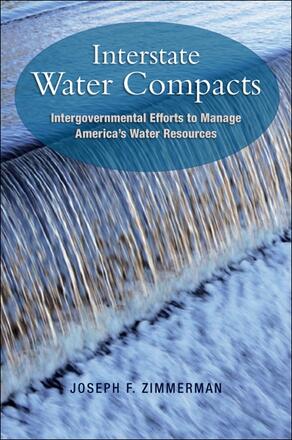
Interstate Water Compacts
Intergovernmental Efforts to Manage America's Water Resources
Alternative formats available from:
Examines intergovernmental efforts within the United States to manage the nation's water supply.
Description
Long taken for granted, water resources are rapidly becoming a contentious issue within American politics. Continuing population growth and rapid development, coupled with environmental events such as droughts, have led to increasing water shortages in sections of the nation. In Interstate Water Compacts author Joseph F. Zimmerman highlights the growing importance of water issues within the United States and a device that has been instrumental in facilitating interstate cooperation to solve water-related problems: the interstate compact.
This groundbreaking work is the first to devote itself exclusively to interstate and federal-interstate compacts pertaining to controversies including the abatement of water pollution, apportionment of river waters, economic development, flood control, inland fisheries, marine fisheries, and restoration to rivers of anadromous fish, such as salmon and shad. The process for entering into interstate and federal-interstate compacts is explained in detail, as is the exercise of original jurisdiction by the US Supreme Court to resolve intractable interstate controversies involving interpretation of provisions of compacts, water apportionment, and water pollution abatement. Zimmerman concludes by calling for the President, Congress, governors, state legislatures, and local governments to devote more attention and resources to finding solutions for water-related problems.
Joseph F. Zimmerman is Professor of Political Science at the University at Albany, State University of New York. His many books include Horizontal Federalism: Interstate Relations; Interstate Cooperation, Second Edition: Compacts and Administrative Agreements; and State-Local Governmental Interactions, all published by SUNY Press.
Reviews
"…a well-researched, detailed reference of interstate compacts with an emphasis on water-related compacts. The text's strength is in its detailed description of the legal justification of interstate compacts and their role in horizontal federalism and intergovernmental relations … worth a read for any student of federalism looking to gain knowledge in this subfield of federalism. " — Publius
"Zimmerman provides a thorough description of the use of interstate compacts and other intergovernmental efforts to manage water resources … Readers who want well-documented source material on the role of interstate compacts, with particular attention to water-related agreements, will find this book valuable. " — CHOICE